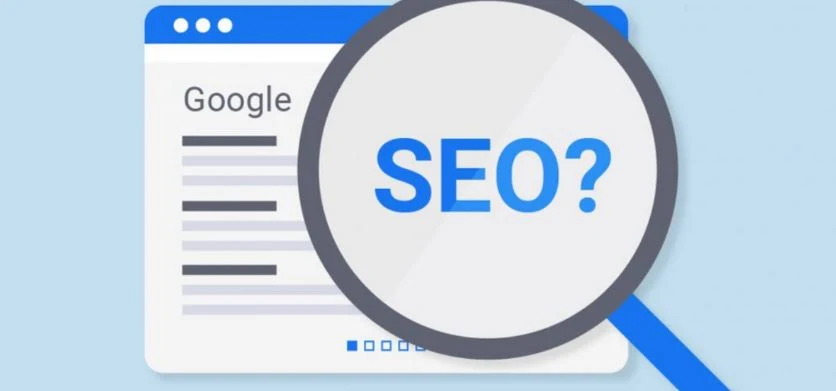On This Page, you will know What is Off-Page SEO and Its Types. Off-Page is very essentials for Get Traffic for your New or Old blog.
What is Off-Page SEO and Its Types?
In the ever-evolving landscape of digital marketing, Search Engine Optimization (SEO) remains a critical element for businesses aiming to enhance their online presence. While many are familiar with on-page SEO tactics, off-page SEO is equally crucial but often overlooked. In this comprehensive guide, we will delve into the world of off-page SEO, exploring what it is and the various types that can supercharge your website's rankings.
Table of Contents
1. **Introduction to Off-Page SEO**
2. **Why Off-Page SEO Matters**
3. **Types of Off-Page SEO**
3.1. Social Media Marketing
3.2. Link Building
3.3. Content Marketing
3.4. Influencer Outreach
4. **Measuring Off-Page SEO Success**
5. **The Power of Backlinks**
6. **Guest Blogging for Off-Page SEO**
7. **Social Signals and SEO**
8. **Online Reputation Management**
9. **Local SEO and Off-Page Optimization**
10. **The Role of Social Bookmarking**
11. **Video and Image Optimization**
12. **Community Engagement and Forums**
13. **Press Releases in Off-Page SEO**
14. **The Future of Off-Page SEO**
15. **Conclusion: Elevating Your Online Presence
Introduction to Off-Page SEO
Off-page SEO refers to all the strategies and activities that take place outside your website to improve its search engine rankings. Unlike on-page SEO, which deals with optimizing your site's content, structure, and HTML source code, off-page SEO focuses on building credibility, authority, and trustworthiness across the vast landscape of the internet.
Why Off-Page SEO Matters
Off-page SEO matters because search engines like Google consider factors beyond your website to determine its relevance and authority. When other reputable websites link to your content or mention your brand positively, it sends signals to search engines that your site is valuable and deserving of a higher ranking.
Types of Off-Page SEO
3.1. Social Media Marketing
Social media platforms have become integral to off-page SEO. Engaging with your audience on platforms like Facebook, Twitter, Instagram, and LinkedIn not only builds brand awareness but also creates opportunities for valuable backlinks.
3.2. Link Building
Link building is the practice of acquiring high-quality backlinks from other websites to yours. When authoritative websites link to your content, it boosts your site's credibility and authority, leading to improved search rankings.
Read Also: How Do I Improve My BLOG SEO
3.3. Content Marketing
Creating exceptional content that others want to link to is a cornerstone of off-page SEO. High-quality articles, blog posts, infographics, and videos can attract natural backlinks, driving traffic and improving SEO.
3.4. Influencer Outreach
Leveraging the reach and authority of influencers in your niche can be a game-changer for off-page SEO. Collaborating with influencers to promote your content can lead to increased visibility and backlinks.
Measuring Off-Page SEO Success
To gauge the effectiveness of your off-page SEO efforts, monitor key metrics such as organic traffic, search engine rankings, and the number of quality backlinks acquired. Tools like Google Analytics and SEO software can help you track your progress.
The Power of Backlinks
Backlinks are the backbone of off-page SEO. They serve as "votes of confidence" from other websites, signaling to search engines that your content is valuable. However, not all backlinks are equal; quality matters more than quantity.
Guest Blogging for Off-Page SEO
Guest blogging involves writing articles for other websites within your niche. By including backlinks to your site in these articles, you can drive traffic and build backlinks from authoritative sources.
Social Signals and SEO
Social signals, such as likes, shares, and comments on social media platforms, can indirectly impact SEO. While they don't directly affect rankings, they contribute to increased visibility and engagement, which can lead to more backlinks.
Online Reputation Management
Your online reputation can influence your search rankings. Managing online reviews, responding to customer feedback, and maintaining a positive brand image can enhance your off-page SEO efforts.
Local SEO and Off-Page Optimization
For businesses targeting a local audience, off-page SEO plays a crucial role. Optimizing your presence on local business directories, getting reviews from local customers, and engaging in community events can boost local SEO.
The Role of Social Bookmarking
Social bookmarking websites allow users to save, organize, and share links to web pages. Participating in these platforms can help increase the visibility of your content and drive traffic to your site.
Video and Image Optimization
Optimizing multimedia content like videos and images can enhance your off-page SEO. Use descriptive filenames, alt tags, and captions to make your media discoverable by search engines.
Community Engagement and Forums
Participating in online forums and communities relevant to your industry can establish you as an authority. Answering questions, sharing insights, and linking to your content can drive organic traffic and backlinks.
Press Releases in Off-Page SEO
Publishing press releases about noteworthy events or developments within your company can generate media coverage and backlinks from news outlets, positively impacting your off-page SEO.
The Future of Off-Page SEO
As search engine algorithms continue to evolve, off-page SEO will remain a dynamic field. Staying updated with the latest trends and adapting your strategies accordingly will be key to sustained success.
Conclusion: Elevating Your Online Presence
In the digital era, off-page SEO is indispensable for businesses looking to excel in the online marketplace. By understanding the various types of off-page SEO and implementing effective strategies, you can enhance your website's visibility, authority, and ultimately, its success in search engine rankings.
FAQs (Frequently Asked Questions)
1. **What is the primary goal of off-page SEO?**
Off-page SEO aims to improve a website's search engine rankings by building credibility, authority, and trustworthiness through activities outside the website itself.
2. **How do backlinks impact off-page SEO?**
Backlinks are crucial in off-page SEO as they signal to search engines that a website is authoritative and trustworthy. Quality backlinks can significantly boost rankings.
3. **Is social media marketing a part of off-page SEO?**
Yes, social media marketing is a vital component of off-page SEO. It involves engaging with audiences on social platforms to build brand awareness and acquire backlinks.
4. **What role does content marketing play in off-page SEO?**
Content marketing is essential in off-page SEO because high-quality content can attract natural backlinks and drive traffic to a website.
5. **How can businesses benefit from influencer outreach in off-page SEO?**
Influencer outreach can help businesses tap into the reach and authority of influencers, leading to increased visibility and backlinks.















